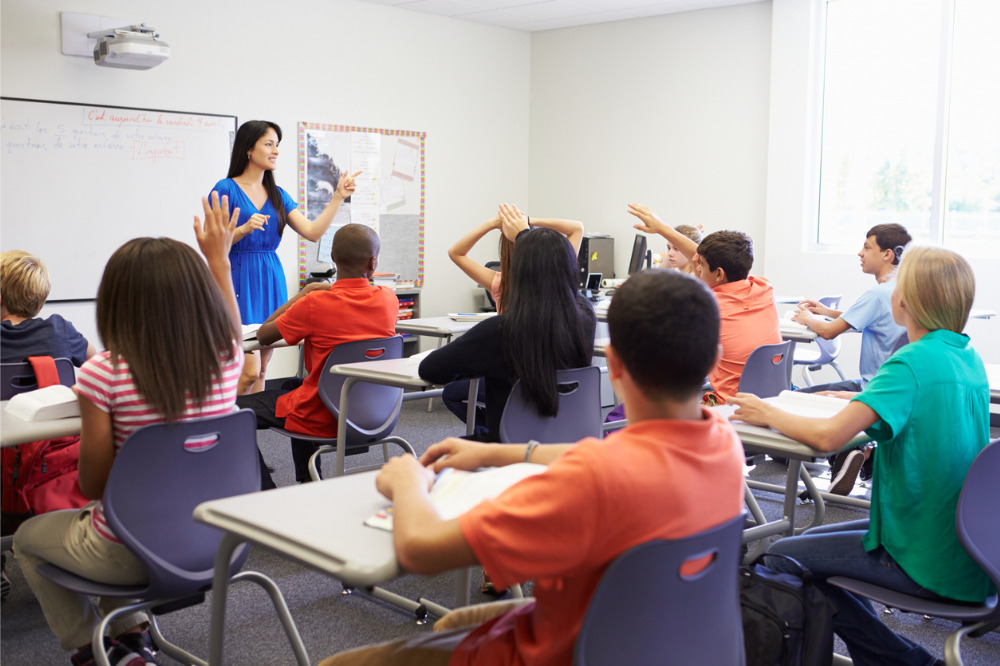
Public, private and Catholic schools in NSW have reached a cross-sector agreement to improve education about sexual assault and violence.
The move comes as Victoria’s government announced that consent education would become mandatory in state schools, and Federal Education Minister Alan Tudge, said the ‘Respect Matters’ program would be rolled out to schools nationally.
The latest development in NSW centers on a ‘Statement of Intent’ by the three major school sectors to identify key areas where the education system and schools could lead meaningful change through curriculum provision based on evidence and best practice; increased support for teachers and school leaders; making sure the views of students were heard; and strengthening community and parent connections.
NSW Education Minister, Sarah Mitchell, said the statement is “an important first step by the education sector in leading meaningful change” to address this community-wide challenge.
“The testimonies of so many young people have created momentum on a whole-of-society issue that requires a coordinated response across government and the community,” Minister Mitchell said.
“While this is a whole-of-society challenge, the statement signed by the three education heads acknowledges the key role schools and teachers, in partnership with parents and parent organisations, will play in supporting change for people of school age and in the broader community”.
Ahead of the statement’s signing, Minister Mitchell said consultation had occurred with the NSW Youth Advisory Council and her own Minister’s Student Council as students were the most important stakeholders in this conversation.
“The first thing we must do is listen to their lived experiences and views on how we can prevent harmful sexual behaviours,” she said.
Minister Mitchell also called on parents – as the most important educators of children - to support this work by talking to their children about respect and consent.
“These aren’t necessarily easy conversations around the dinner table and as parents we don’t always know if we have the language right,” she said.
“I recognise that so many schools already work closely with their families, community organisations, government agencies and most importantly the children and young people in their care to help address these important challenges. However, more can always be done”.
Minister Mitchell said this is where the education system and schools, in partnership with community organisations can help.
“We can offer the programs, resources and two-way dialogue to support parent and community engagement,” she said.
“As a concrete first action for the NSW public school system, the Department of Education will be reviewing and revising the resources offered to both teachers and parents to help support student learning on this important issue”.
Early intervention is key
Qualified primary school teacher and now acclaimed author Naomi Hunter is a child sex abuse survivor whose children’s books help young people identify what abuse is and empowers them to speak up.
Hunter said Australia’s schools are in urgent need of nationally mandated sexual consent education that goes right to the core of the problem – awareness and empowerment.
“It is a child’s human right to have this information, and withholding it seems terribly remiss of our duty of care for them,” she told The Educator.
“And this education doesn’t just have to start when children become teenagers – it can start so young and be woven throughout their lives so they can have a beautiful consistent message about how to trust their hearts and minds, and feel empowered to speak up”.
Hunter said most children do not speak up when abuse is happening because it is most often perpetrated by people who the child knows and cares about.
“These are people who they’ve built a trusted relationship with, so it’s very hard for them to deny their own truth and say that it doesn’t feel right when the adult who they love is saying what’s happening is fine,” she said.
“How do they know to listen to their heart and validate themselves if they’re not being taught that this behaviour is wrong? If they don’t know it’s wrong, they can’t talk to someone about it”.


